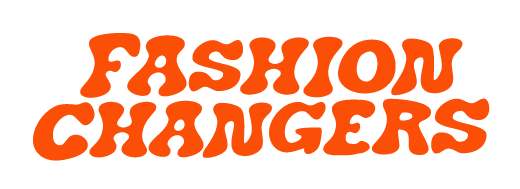The term inclusion is on everyone's lips and has become increasingly important in recent years. But what exactly is behind it? What does inclusion bring us and how can we be more inclusive as a society?
What is inclusion?
The word inclusion comes from Latin. It stands for 'to be contained' or 'to be there'. Inclusion means that everyone in all areas of life naturally belongs. Conversely, inclusion means that there is no exclusion or disadvantage. It's about recognizing diversity as something natural and enriching and removing barriers so that everyone has the opportunity to participate equally in society.
The topic of inclusion is often discussed in connection with the inclusion of people with disabilities. But inclusion encompasses much more. An inclusive society creates the conditions for the participation of all people, regardless of disabilities, gender, ethnic origin, sexual orientation or other characteristics.
In contrast to integration, inclusion is not about people adapting to a given structure and thereby belonging. Rather, inclusion means that structures adapt to people and their characteristics and abilities. The perspective is therefore directed from the individual to society. It is not the individual who has to integrate. Society creates framework conditions through which every person belongs equally and feels like a valued part of a community.
Why is inclusion important?
One might think that inclusion only benefits those who are marginalized due to “deviant” characteristics . But that's not the case. An inclusive society includes benefits for all people. What these are is not always immediately obvious. That's why Aktion Mensch, together with experts from various areas, has 10 good reasonsfor inclusion, which we have identified feel free to pass it on in a summarized form.
Reason 1: Cohesion in society is strengthened< span data-mce-fragment="1" data-ccp-props='{"134245418":true,"134245529":true,"201341983":0,"335559738":40,"335559739":0,"335559740 ":259}'>
The feeling of belonging strengthens the personality of the individual and thus makes society stronger as a whole. A strong society, in turn, can deal better with challenges and crises, also because people see themselves more as a community.
Reason 2: The quality of life is improved
An inclusive environment includes public spaces that are accessible and accessible to everyone, as well as meeting places. When more people have the opportunity to participate in public life, life becomes more colorful and lively for everyone.
Reason 3: Democracy is strengthened
Inclusion also means that all people can participate equally and represent their interests and opinions. Only when the perspectives of many different people are heard will democracy actually be lived.
Reason 4: Accessibility is good for everyone
Ultimately, everyone benefits from structural, technical or communicative accessibility. For example, turning to simple or easy language or barrier-free access is not only beneficial for people with disabilities, but also for many others.
Reason 5: The impact of demographic change are toned down
Everyone who works usually also pays into the pension fund. So if more people are enabled to gain a foothold in the primary labor market, such as B. People with learning difficulties or with a migration background, this at least cushions the consequences of an aging society.
Reason 6: Innovative thinking and action is encouraged
As part of inclusion, a society automatically develops more creative thought patterns in order to create equal opportunities for everyone. Since not everything can be standardized in an inclusive society, innovations are necessary that address all people with their different characteristics and abilities. And innovative thinking and action moves us all forward.
Reason 7: Inclusion brings success and financial benefits
Inclusive companies that focus on diversity among their employees are more successful. Research proves this. Mixed teams with diverse characteristics and backgrounds have a diverse range of experiences to address problems and a more diverse approach to developing ideas.
Reason 8: The shortage of skilled workers is reduced
The German economy can no longer afford to exclude certain groups of people. The shortage of skilled workers is undisputed. An inclusive labor market that creates structures that include more people, such as: B. people with disabilities or with an immigration background, can counteract the shortage of skilled workers and stimulate our economy.
Reason 9: Money and resources are saved in the long term
Inclusion doesn't always have to cost more. Especially in the long term, an inclusive society can save money and resources by focusing on the issue of participation. For example, if different target groups are taken into account when planning construction projects, possible problems are better identified in advance, which makes later investments unnecessary.
Reason 10: Inclusion means compliance with laws
The German Basic Law states that no one should be treated because of their gender, descent, race, language, origin, faith, religious or political views or his or her disability may be discriminated against. Inclusion is therefore defined by law. In addition to the Basic Law, there are other laws and conventions, such as: E.g. the General Equal Treatment Act or the UN Convention on the Rights of Persons with Disabilities, all of which were drawn up to ensure inclusion.
How can inclusion be achieved?
There is still a long way to go before our society can be described as inclusive. There are already many measures and approaches that contribute to greater inclusion. But there is still a lot to do.
On the one hand, it is crucial that there is legal frameworkexists that protect the rights of marginalized groups and prohibit discrimination. As mentioned before, there are already legal regulations in this regard. However, these are by no means complete or sufficient. In many areas there is still no secure legal situation, but there are unequal treatment that must be addressed in order to enable a truly inclusive society.
Furthermore, it is important to create structures that give all people the opportunity to be full members of society. A focus here is primarily on the area of education . It is the declared goal of the United Nations to ensure inclusive, equitable and high-quality education for all people by 2030, in which students with disabilities are also included in the general school system. For this to happen, a complete system change would have to be carried out in Germany, which still seems to be a long way off.
Also on the Labor MarketThere is still a lot to be done in terms of inclusion. An important step was the adoption of the draft law to promote an inclusive labor market, which is primarily about getting people with disabilities into regular work. The labor market must also develop further in terms of gender equality. This can only be achieved if the needs of women and gender-marginalized groups are taken into account and injustices are actually acknowledged. And last but not least, it should be made easier for people with a migrant background to gain a foothold in the job market and their diversity should be recognized as a strength.
Of course there are also many things in the everyday lifethat make it difficult for people to participate equally. A lot still needs to happen in terms of linguistic, technical and structural accessibility in order to give everyone the opportunity, for example, to get information, reach places or live independently. For us at Wombly, inclusion also means that everyone has the right to be able to dress beautifully and according to their own requirements and thus feel comfortable in everyday life. Produce adaptive clothing, that adapts to people and their needs is therefore our contribution to an inclusive society.
Ultimately what matters is thatPrejudices and barriers in people's mindsdismantled will be. This is done through educational work, sensitization, but above all through encounters. Because when people meet at eye level, they quickly realize that the differences are not that big. And that we all just want to lead a self-determined life that corresponds to our own ideas and be valued as part of society. If this were possible in a society, then one could actually speak of an inclusive society.
(Image credit: kali9 | Getty Images Signature)






